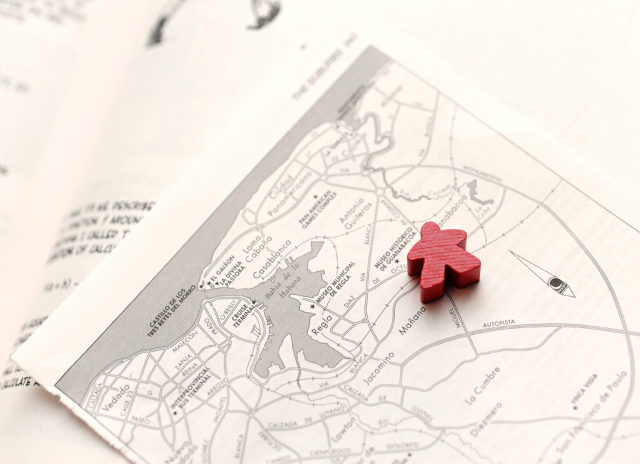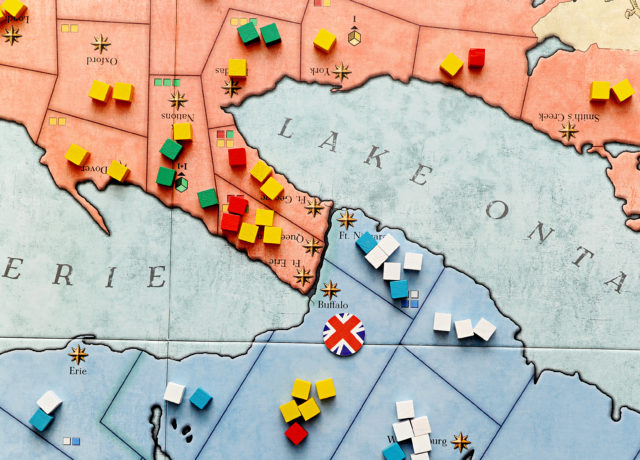Note: I am a Canadian, but like much of the world, I closely follow U.S. politics. Much of the analogies in this article will refer to the current political and societal situation in the States. I have many family members and friends in the States. I love and respect the potential it holds.
Hold on to your hats, we’re going to get political here.
I had originally envisioned writing this article way back in the thick of the Democratic Presidential Primary. I wanted it to go live with a Bernie Sanders nomination and an examination about how some of his policies reflected the shared goals you see in many modern cooperative games. However, with Biden winning the nomination and a global pandemic literally changing the world as we know it, this seems to be an appropriate time to share this sentiment.
Right now, we’re facing challenges that strain every aspect of society. There is the financial fallout, with so many people losing work and businesses being forced to shut their doors. There is (well deserved) political unrest with the unjust treatment of BIPOC by police. For the first time in a long time, it feels as if significant structural changes are possible, due in large part with the peaceful protests around the world and the shifting of public support. The country is divided people very clearly sticking to their party line. And of course, there’s the pandemic, itself responsible for over 700,000 deaths. Things are hard right now and promise to get worse before they get better.

Just like the opening moves of a cooperative game, we have to assess or situation and consider both long and short term achievable goals and the fastest way to accomplish them. For example, we all want the disease to be contained as much as possible. This leads to a healthier society, less deaths, and a quicker reopening of the economy. So, if we consider this in game terms, we might think of the ‘special powers’ that are available to us. If this was a game of Pandemic, we’d have the Medic, the Scientist, or the Researcher (NOTE: the heroes of the fictional game come from the scientific community. You don’t see the President, the Pundit, or the Lawyer in that game). But while there may be some frontline workers (heroes) reading this, the vast majority of us won’t be finding the vaccine, or inoculating cities on a massive scale. That’s not to say we don’t have achievable goals to do our part.
Each of us has the super power of wearing masks. Sure, it’s not a sexy super power, but it’s one that we all have the ability to take part in. And I do believe there are people out there that for health reasons can’t wear masks, but I think that is a very small number of people. They are also probably the type of people who should be avoiding gatherings anyway. I also think there are some people out there that are using health as an excuse or simply refusing because they feel like it is an infringement on their rights. Imagine playing a game with someone who refused to act towards the presumed shared goal of all of the players for their own reasons. Is that the sort of person you’d want to play a game with? Many times in cooperative games, we have to take a small personal sacrifice; we allow another player to heal because they’re in worse shape or stop in Algiers to clean up one of the disease cubes there. I don’t really consider wearing a mask a sacrifice (I feel like a ninja), but even if you do, it is a small sacrifice you can make to bring us all closer to our shared goal.

We have another super power that is available to all of us. We have the power to educate ourselves and to be critical about what we hear and what is the source. I certainly have my political beliefs and I understand other people have their own, but it is important to be self-critical and always endeavouring to learn. Again to put it in the context of a game, if a player on your team is making decisions without a full understanding of the rules, and shows no interest in learning them or taking input on what sort of move they could or should make… well, again, that’s not the type of person I want to be myself, and it’s not the type of person I want to play with. It is a challenging time to intake and process all the information being funnelled at us at all times, but if we’re curious and critical about the information we receive and if we honestly look for the truth, I think it is possible to find it. It is our responsibility to use the super power of education to find that truth.
The last area I want to address in this fictional, and yet all-too real, cooperative board game called life, is equality. The world right now is not equal. It’s not fair. That is, in my mind, indisputable. The George Floyd murder has shone a spotlight on something that BIPOC (and honestly anyone who has been paying attention) have known for a long time. There is systematic racism permeating many of our systems of government. If you are not convinced, consider the (far too) many videos that have been recorded over the last decade of police aggression and outright violence towards BIPOC and try to imagine the outrage if those people had been white. Just recently in Kenosha, Jacob Blake was shot seven times by officers despite being unarmed. During the resulting protests, a 17-year-old, heavily armed vigilante waded into the protest, shot two people, and was allowed back across the police line without even being detained. He went home that night and wasn’t arrested until the next day. I find it hard to imagine you’d see the same treatment for a BIPOC. There are some things broken it the way the world is running right now, and I think informed, intellectually honest people can’t really argue that. There are many ways the world is suffering from inequality. There is still a gender pay gap, people can be discriminated against for their gender, orientation, or any number of other things. If you come from a lower income background (a rapidly growing segment of the population), there are fewer opportunities to pull yourself out of that situation. Can we ever achieve some level of utopian equality? Perhaps, not, but we have to be fighting for that possibility to keep progressing.

Let me bring this back to game terms. If you were going to play a game, but right off the bat you had less money, less actions, less access to the different places on the board, and suffered random penalties that other players didn’t have to deal with…well, suffice to say, you wouldn’t enjoy the experience and you might resent the people you were playing with. If you can recognize that in the context of a game, it shouldn’t be a difficult leap to understand how difficult life can be for people struggling against racial, social, and economic oppressions. Realizing that, it is the morally correct stance to seek equality in every way that we can. We’ve been ignoring these societal issues for too long, and the unrest is not going to go away. People have justifiable issues with the way things currently run. It’s time we hear their voices.
If our shared goal is a society that works, we need to all be willing to make sacrifices for the good of the team. We need use the super powers we have at our disposal and we need to fight to cure injustices where we see them. I think we can look back at a time like this as a turning point. We will win the game together as a team, or to make the necessary moves? Future civilizations will look back and analyze the decisions we make right now. It is our turn and we hold the cards in our hands. We just have to realize that we’re all on the same team.
We would love to hear your thoughts. How do you see life reflected in board games, cooperative or competitive?
I’ve long believed that one of the biggest problems we face in politics is helping everyone understand that civilization is a co-op game. Certain political choices that seem cruel make sense if you imagine the politicians behind the choices think they’re playing a competitive game. If only there was a way to help everyone understand that the only way to win Pandemic is by working together. I really enjoyed your thoughts, Sean. Thanks!